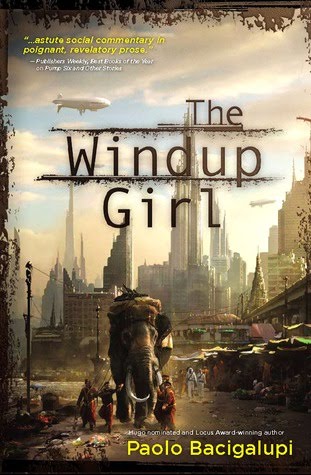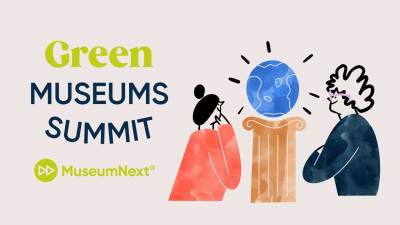
“The function of science fiction is not always to predict the future but sometimes to prevent it.”—Frank Herbert
Me, authoritative voice, telling you, museum professional: Read More Science Fiction
I know, it may look and feel like wasting time (because it’s, you know, fun) but I assure you it is a totally valid forecasting activity.
Some good science fiction hits the futurist sweet spot—set far enough in the future not to become quickly dated, close enough to the present to help us reflect on the consequences of our current acts, building on credible projections and spiced with vivid imagination. Paolo Bacigalupi’s The Windup Girl fits the bill, and is tremendously well-written to boot. I encourage you to add to your summer reading list.
 |
| (photo credit: Nightshade Books) |
Bacigalupi’s story takes place in a dystopic world about 100 years in the future, shaped by:
- The collapse of petroleum supplies
- The effects of global warming, notably a dramatic rise in sea level
- Genetic engineering as the dominant technology of the era
“Calorie wars” over food and seed stock have wracked the world. Society has just begun to re-establish global trade, via dirigibles and sail, and the emergent powers are giant agricultural companies. Employing the best and brightest generippers, these companies control governments and economies by nefarious use of genetically engineered diseases that wipe out crops (and have a regrettable tendency to mutate into human pathogens), graciously fill the resulting caloric void with resistant (and sterile) seeds.
Does this sound just a little bit plausible? (*cough* Monsanto *cough*)
The tale is set in Thailand, the only country to resist the global crop monopolies through its careful stewardship of its botanic heritage (and a willingness to engage in its own biohacking, when necessary). The “windup girl” of the title is a genetically engineered geisha-cum-personal assistant, one of a number of “New People” created by the Japanese to fill their need for workers given the continued decline and aging of their population.
Here are some of the very real contemporary issues this fictional tale pushes us to consider:
- As we extend the boundaries of biotechnological enhancement and begin to experiment with genetic manipulation, what constitutes the boundaries of “being human?” Will biologically enhanced people have the same rights as non-enhanced? (Think this isn’t a current issue? Check out the debates concerning who can compete in the mainstream Olympics.)
- Faced with the inevitable approach of peak oil, and with heightened awareness of the dangers of nuclear energy, how do we prepare for a credible future that relies on neither of these sources of power?
- Is genetic manipulation of food wise? For example, do the risks posed by crops designed to be herbicide-resistant outweigh the benefits?
- Are the current policies governing distribution of seeds to third world (via trade or aid) ethical? Do they provide a short-term solution that in the long term will endanger crucial biodiversity?
 And, (this reader, at least, wants to know) if you cross a cat with a chameleon, would you really get a Cheshire feline capable of surviving the end of the world?
And, (this reader, at least, wants to know) if you cross a cat with a chameleon, would you really get a Cheshire feline capable of surviving the end of the world?
Please contribute your futurist summer reading recommendations in Comments, below. Better yet, volunteer to review a book for this Blog!









What a marvelous book on so many different levels.
FYI,Bacigalupi's "Pump Six and Other Stories" has a few pieces also set in the world of "The Windup Girl," for those of us who needed more of his brilliantly depressing vision…